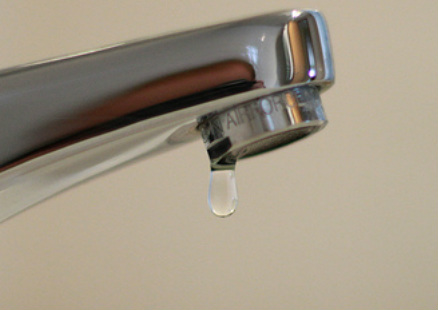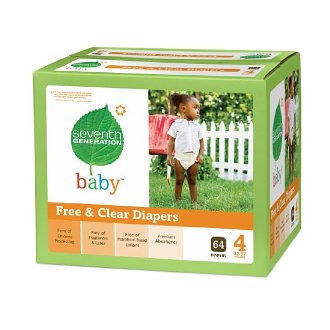|
Our main method of water "purification" in the U.S. is chlorine. Yeah, the same stuff that's in household bleach and pool water. You know when you go to the pool and you get the stinging eyes, sore throat, and itchy skin? That's from chlorine and we're drinking it every day! Studies have shown that women with breast cancer have 50-60 percent more chlorine in their breast tissue than women without breast cancer. The US Council of Environmental Quality study says that “cancer risk among people drinking chlorinated water is 93% higher than among those whose water does not contain chlorine.” It also hardens arteries, creates circulatory problems and causes respiratory illnesses. Drinking chlorinated water is not the only way it enters our systems. Two-thirds of the chlorine that we accumulate in our bodies comes from the shower. Not only does our skin absorb water, but we also inhale chlorine from the steam. Today, in spite of so many new technological advances in water purification, we are still adding this bleach to our water. Because it's cheap. Prescription drugs are another contaminant of the U.S. water supply. An Associated Press investigation found that 24 major metropolitan cities in the U.S. are contaminated with pharmaceuticals. Antidepressants, anti-seizures, antibiotics, birth control, and pain killers were all found in the public water supply. The federal government does not require any testing and has not set safety limits for drugs in water. When we take medicine we excrete them through our urine. That urine then makes its way to the water treatment plant. Many microscopic particles, like pharmaceuticals, are not removed from the water when treated. Even bacteria are not actually removed; they are just killed. One of the absolute worst contaminants in our water supply is fluoride. I attempted to write about fluoride but it ended up being way too much information to share in a blog. Entire books have been written about fluoride. My favorite is Fluoride, Teeth, and the Atomic Bomb. You should also watch this video. There are three parts, and this is the first. The first part is boring but it is essential to get background info. It gets better in the 2nd, 3rd and 4th parts. Dr. Phyllis Mullenix is the doctor who first discovered the harmful effects of fluoride. She discusses the government conspiracy related to fluoride. It's very interesting! Even if you are not interested in health but are interested in history or conspiracies, you should watch! We will never be able to drink completely pure, uncontaminated water. But we can try to find the next best solution. Spring water is a much better choice than tap water because it is not treated with chemicals. But it still may be polluted if the area uphill is used for manufacturing, agriculture, or other sources of contamination. A whole-house reverse-osmosis filtration system would be a wonderful option. Reverse Osmosis filters water by squeezing it through a semi-permeable membrane, equal to 0.00000004 inch! Non-Reverse Osmosis water filters are less effective because the pore size on these filters are much bigger. A whole house system can be expensive, but there are also single reverse-osmosis filters, which are more economical ($150-300), and can be installed right under your sink. Another option would be to buy spring, distilled, or reverse-osmosis drinking water in jugs at the grocery store. Reverse Osmosis and Distillation are both capable of removing chemicals and fluoride. And if none of the options above are feasible then at least a simple carbon filter, which can be purchased at Walmart, would be one step closer to purer water. They reduce some of the chlorine, but not fluoride.
0 Comments
I was surprised when I read a statement by Dr. Sears that "all babies get diaper rash." I love Dr. Sears but he's wrong on this one. Neither of my kids have ever had a single case of even mild diaper rash. I don't think this is because they have some anti-diaper rash gene. I believe it is because of our diapers and wipes. We have always used Seventh Generation diapers and wipes. And I know of many Seventh Generation users with similar testimonies.
The majority of diapers and wipes contain chemicals that irritate and burn a baby's tender skin. They are bleached with chlorine, which results in byproducts called dioxins. According to the Environmental Protection Agency, dioxins are some of the most toxic chemicals. Exposure to them has been known to cause skin irritation and impairments to the endocrine (hormonal), nervous, and reproductive systems. Other chemicals present in diapers and wipes include dyes, perfumes, fragrances, and alcohol. I love Seventh Generation diapers and wipes because they are made with minimal, safe ingredients, and are not bleached with chlorine. I really don’t like the powdered, perfume, chemical smell of most other diapers either. It doesn't mask the other smells, it just makes it worse. Seventh Generation is also very absorbent. Cloth diapering with organic cloth diapers can also be a great alternative to traditional diapers, but I just wasn’t into that. It can be time-consuming and it grosses me out a bit. But I applaud anyone who does it! I think the reason most moms don’t buy Seventh Generation is because they don’t know about it. Seventh Generation is not in most stores. We have found their products reasonably priced at Babies'R'Us and Harris Teeter. We have also found them in the natural sections of Kroger and Food Lion, but they were very expensive there. We buy them online through Amazon Subscribe and Save, which has the cheapest price we’ve seen. Some people are turned off by the price because they are slightly more expensive than Huggies or Pampers, but only by about 3 cents per diaper. But by using Seventh Generation diapers and wipes, you won’t have to spend money on diaper rash cream or trips to the doctor. And you won't have to see your baby in pain from diaper rash. They are also very absorbent, so you don’t go through as many. I just love them! I tell everyone about them! Even people who don’t have kids. :) Recently, the University of California, San Francisco recommended that governments worldwide regulate sugar as an alcohol because it is so toxic to the human body. It contributes to obesity, diabetes, heart disease, and cancer. You may be thinking, "But we need sugar, right?" Yes, our bodies do need carbohydrates. But only in the form of fruit, vegetables, beans, and whole grains. And not a lot of it. From a hunter-gatherer perspective, fruit was only available a few months of the year. Fruit sugar is metabolized primarily by the liver. So is added table sugar. When we eat things with added sugar we are giving our livers more than it was designed to handle. On the other hand, whole grains are metabolized safely, steadily by the cells throughout our body.
One of my main issues with added sugar is that it causes a rapid spike in blood-sugar, and then a few hours later, a huge drop. This totally confuses and overloads our insulin, which is designed to regulate blood sugar levels. And that is what causes many cases of diabetes. Many people with low blood sugar believe they need to consume high sugar foods like soda and candy to keep their blood sugar high. But that is just the opposite of what they need to do. Soda and candy will causes a rapid spike, and then a few hours later, a huge drop. Eating whole grains and vegetables would be much better because it would give the body the right amount of healthy carbohydrates throughout the day. Another problem I have with sugar is that yeast thrives on it. We all have Candida (yeast) in our bodies. The good bacteria in our bodies help to keep it in check. But candida thrives on sugar and giving it too much can cause an overgrowth, which leads to all sorts of yeast infections. I’m not just talking about the kind that girls get. Thrush, which babies get on their tongues, is one. There are also diaper rashes caused by candida. People also have yeast infections in their stomach. This comes with symptoms like depression, autistic tendencies, irritability, fatigue, and mood swings. There is also systemic yeast infection, which can include a variety of odd symptoms, such as fever, elevated heart rate, respiratory problems, and shock. Sugar contributes to all of these infections. Antibiotic usage does too. Lastly, sugar feeds cancer cells. Someone with a history of cancer needs to make sure to completely avoid added sugar. If the cancer is very severe they might even need to avoid grains and fructose (fruit sugar) for some time. So, you might be thinking, what can I eat? We should eat things that God made, like vegetables, fruit, whole grains, nuts, seeds, beans, and meat. But especially vegetables. And especially organic. I know it can be difficult to follow at times, but we can try our best. :) |



